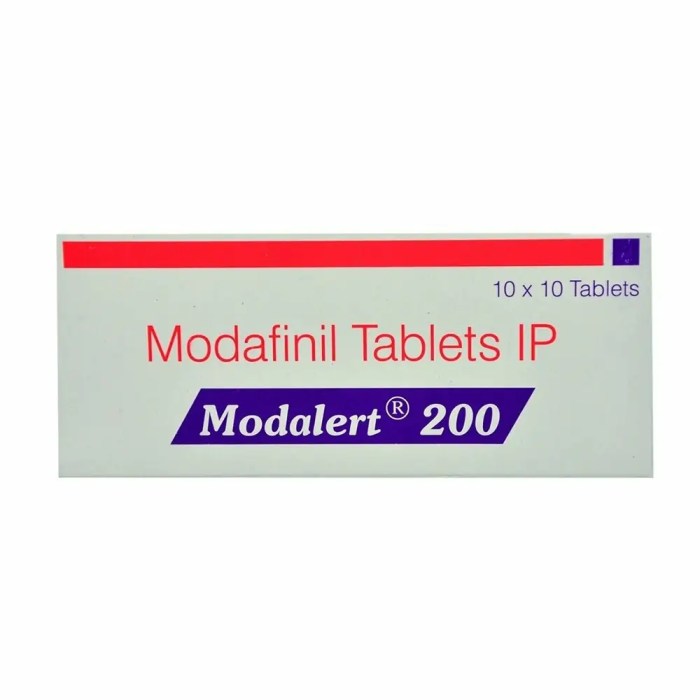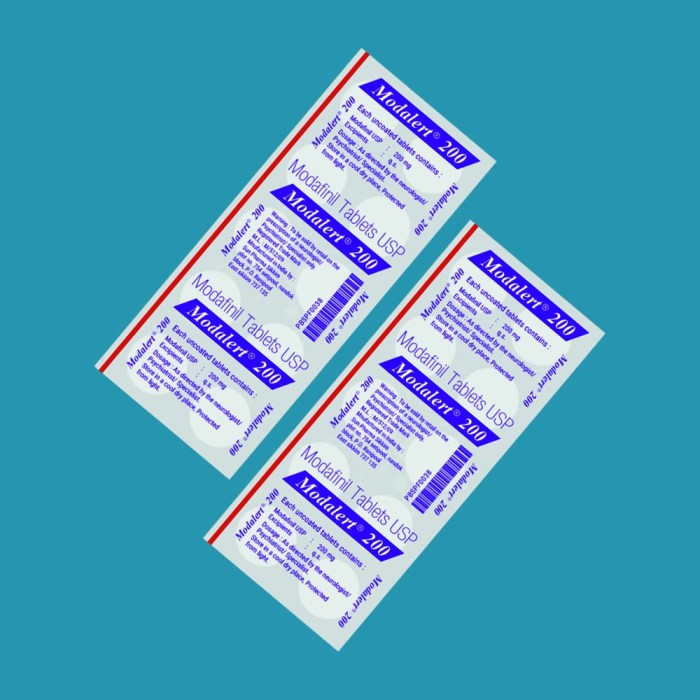Modalert, a potent wakefulness-promoting drug, has captivated the attention of researchers, medical professionals, and the public alike. This intriguing compound, known for its ability to enhance alertness and cognitive function, has found its way into various applications, from treating narcolepsy to boosting productivity. But what exactly is Modalert, how does it work, and what are the potential implications of its use? This exploration delves into the fascinating world of Modalert, uncovering its origins, mechanisms of action, therapeutic applications, and the ethical considerations surrounding its widespread use.
Modalert is a medication primarily used to treat excessive daytime sleepiness associated with narcolepsy, shift work sleep disorder, and other sleep disorders. It belongs to a class of drugs known as eugeroics, which promote wakefulness and alertness. Modalert is a synthetic compound chemically similar to the naturally occurring stimulant, modafinil. Its development stemmed from the observation that modafinil, a previously approved drug for narcolepsy, exhibited remarkable cognitive-enhancing properties. Modalert was subsequently synthesized and approved for use as a wakefulness-promoting agent, offering an alternative to modafinil with comparable efficacy.
Modalert

Modalert is a medication used to treat excessive sleepiness associated with narcolepsy and shift work sleep disorder. It is a wakefulness-promoting agent that belongs to the class of drugs known as eugeroics.
Chemical Composition
Modalert’s active ingredient is modafinil, a synthetic compound with the chemical formula C15H15NO2S. It is a white, crystalline powder that is typically formulated as tablets for oral administration.
Uses and Applications
Modalert is primarily prescribed for the treatment of:
- Narcolepsy: A chronic neurological disorder characterized by excessive daytime sleepiness and sudden attacks of sleep.
- Shift Work Sleep Disorder: A sleep disorder that occurs when an individual’s work schedule conflicts with their natural sleep-wake cycle.
Modalert is also being investigated for its potential use in other conditions, such as:
- Attention-Deficit/Hyperactivity Disorder (ADHD): Some studies suggest that modafinil may improve attention and focus in individuals with ADHD.
- Obstructive Sleep Apnea: Modafinil may help to reduce daytime sleepiness in individuals with obstructive sleep apnea.
- Cognitive Enhancement: There is some evidence that modafinil may enhance cognitive performance, including memory, attention, and decision-making.
History and Origin
Modafinil was first synthesized in 1974 by French researchers at the pharmaceutical company Lafon Laboratories. The drug was initially marketed in France under the brand name Provigil in 1998.
- Development: Lafon Laboratories conducted extensive clinical trials to evaluate the safety and efficacy of modafinil. These trials demonstrated that modafinil was effective in treating narcolepsy and shift work sleep disorder.
- Approval Process: The U.S. Food and Drug Administration (FDA) approved modafinil for the treatment of narcolepsy in 1998 and for shift work sleep disorder in 2000.
Mechanism of Action
Modalert, also known as modafinil, is a wakefulness-promoting drug that works by influencing the activity of certain neurotransmitters in the brain. It is classified as a eugeroic, meaning it promotes wakefulness and alertness without acting as a stimulant.
Neurotransmitter Interactions
Modafinil’s mechanism of action is complex and not fully understood, but it is believed to primarily involve the following neurotransmitters:
- Dopamine: Modafinil increases dopamine levels in the prefrontal cortex, a brain region associated with executive function, motivation, and reward. This increased dopamine activity is thought to contribute to Modalert’s effects on alertness and cognitive performance.
- Histamine: Modafinil stimulates the release of histamine, a neurotransmitter that plays a crucial role in regulating wakefulness and attention. Histamine release in the hypothalamus, a brain region involved in sleep-wake cycles, is believed to promote arousal and reduce sleepiness.
- Orexin: Modafinil also interacts with orexin neurons, which are involved in regulating wakefulness, appetite, and energy expenditure. Orexin neurons are located in the hypothalamus and project to various brain regions, including the prefrontal cortex, amygdala, and hippocampus. Modafinil’s stimulation of orexin neurons may contribute to its wakefulness-promoting effects.
Cognitive Enhancement
Modafinil’s impact on cognitive function is multifaceted, primarily influencing:
- Attention: Modafinil improves attention and focus, enabling individuals to concentrate on tasks for extended periods. This effect is particularly relevant for individuals with attention-deficit/hyperactivity disorder (ADHD) or other conditions that impair attention.
- Alertness: Modafinil increases alertness and reduces feelings of fatigue, promoting a sense of wakefulness and mental clarity. This effect is beneficial for individuals who experience excessive sleepiness or fatigue, such as those with narcolepsy or shift work sleep disorder.
- Wakefulness: Modafinil promotes wakefulness and reduces sleepiness, allowing individuals to stay awake and perform tasks effectively during periods when they would typically be tired. This effect is particularly useful for individuals who need to stay awake for extended periods, such as pilots, doctors, or students.
Brain Regions Affected
Modafinil’s effects on cognitive function are mediated by its interactions with various brain regions, including:
- Prefrontal Cortex: The prefrontal cortex is involved in executive function, working memory, and decision-making. Modafinil’s effects on dopamine levels in this region are believed to contribute to its cognitive enhancement effects.
- Hypothalamus: The hypothalamus is a brain region involved in regulating sleep-wake cycles, appetite, and hormone release. Modafinil’s stimulation of histamine and orexin neurons in the hypothalamus is believed to promote wakefulness and reduce sleepiness.
- Amygdala: The amygdala is involved in processing emotions and memories. Modafinil’s effects on the amygdala may contribute to its mood-regulating effects, although further research is needed to clarify this aspect.
Therapeutic Applications

Modalert, a medication primarily used to treat excessive sleepiness associated with narcolepsy, has a range of therapeutic applications. It is a wakefulness-promoting agent that works by stimulating the central nervous system, thereby improving alertness and reducing drowsiness.
Treatment of Narcolepsy
Narcolepsy is a chronic neurological disorder characterized by excessive daytime sleepiness and sudden attacks of sleep. Modalert is a highly effective treatment for narcolepsy, helping individuals stay awake and alert during the day. It improves their ability to function normally, participate in social activities, and maintain a healthy work-life balance.
Shift Work Sleep Disorder
Shift work sleep disorder is a sleep disorder that affects individuals who work irregular or rotating shifts. These individuals often experience difficulty adjusting their sleep-wake cycle, leading to daytime sleepiness and impaired performance. Modalert can help improve alertness and reduce daytime sleepiness in individuals with shift work sleep disorder, enabling them to perform their duties more effectively.
Attention-Deficit/Hyperactivity Disorder (ADHD)
While not specifically approved for ADHD, Modalert is sometimes used off-label to treat symptoms of inattention and hyperactivity. It can improve focus, concentration, and cognitive function in individuals with ADHD, although further research is needed to establish its efficacy and safety in this context.
Other Applications, Modalert
Modalert has also been investigated for its potential therapeutic applications in other conditions, such as:
- Obstructive Sleep Apnea: Modalert may help improve daytime sleepiness in individuals with obstructive sleep apnea, a condition characterized by repeated pauses in breathing during sleep.
- Multiple Sclerosis: Modalert has been studied for its potential to reduce fatigue in individuals with multiple sclerosis, a chronic disease that affects the central nervous system.
- Depression: Some studies suggest that Modalert may have antidepressant effects, but more research is needed to confirm this.
The journey into the world of Modalert has unveiled its fascinating history, intricate mechanisms of action, and diverse applications. From its origins as a treatment for narcolepsy to its potential for cognitive enhancement, Modalert has sparked both scientific curiosity and societal debate. As research continues to unravel the intricacies of this powerful compound, its impact on human health and cognition will undoubtedly continue to shape our understanding of wakefulness, alertness, and the very nature of the human mind.
Modalert, a medication used to treat narcolepsy, can sometimes have side effects that require legal intervention. If you or a loved one is experiencing these issues, it’s important to seek guidance from a qualified professional. You can find guardianship attorneys near me who can help navigate legal complexities related to medication management and ensure the best possible care for individuals affected by Modalert’s side effects.